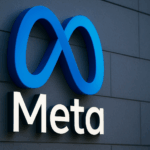On the heels of a rapidly evolving technological landscape, Heron Data has carved its niche by focusing on the automation of document-based workflows in financial realms. With fresh funding in its Series A round, Heron aims to accelerate its impact across the insurance, equipment finance, and SMB lending sectors. As the company strengthens its suite of automation tools, it keeps a keen eye on scalability and efficiency, implicitly responding to the growing needs of businesses dependent on manual processes.
Previously, developments by firms like Upstart brought about significant changes in loan underwriting, where nearly 92% of loan transactions were reported to be automated. This trend underlined the transformative potential of AI in finance, providing a backdrop to Heron’s current objectives. Despite these ongoing advancements, Heron’s approach emphasizes a balance between machine efficiency and human insight.
How Will the New Funding Impact Heron?
The recent $16 million investment signals a broader commitment to Heron’s mission. This financial injection will enable the company to refine its technological capabilities further, expanding into new markets that are ripe for automation. With these resources, Heron seeks to enhance the role of AI in relieving businesses from menial tasks, allowing human resources to focus on more complex decision-making processes.
Can AI Fully Replace Human Oversight?
Complete reliance on AI remains elusive. Heron’s CEO, Johannes Jaeckle, conveyed a pragmatic view on AI’s role, stressing that achieving absolute accuracy in automation is unrealistic.
“Instead of chasing accuracy, we focus on clearly understanding where our software is successful and where humans still need to review,”
Jaeckle noted, illustrating the necessity of human oversight in high-stakes financial scenarios.
The company’s platform automates tasks that traditionally consumed significant amounts of time. By transforming these processes—like scanning emails, organizing files, and performing checks into seamless operations—Heron provides a competitive edge through increased efficiency and precision. The tools reduce operational bottlenecks, thus allowing better allocation of human oversight in areas driven by judgment.
Noteworthy examples of successful integration of automation in finance include the expansion of credit access and enhanced precision in identifying credit-worthy clients, as observed in recent earnings reports. As part of this ecosystem, Heron’s efforts contribute to a gradual, yet necessary, evolution of automated systems within financial services.
Insurance company Lemonade’s expansion in AI-backed operations illustrates a broader industry trend towards leveraging technology for market precision. Young, safe drivers are now effectively pinpointed due to advanced AI, which ensures competitive pricing strategies.
The advancements in technology offer compelling solutions for increasing workplace efficiency. Heron Data stands among several firms dedicated to optimizing financial industry’s operations. Their continued focus on blending AI with human expertise presents a model for maintaining balance in automated processes. This watchful combination of machine and human roles is central to future advancements expected within the field.










